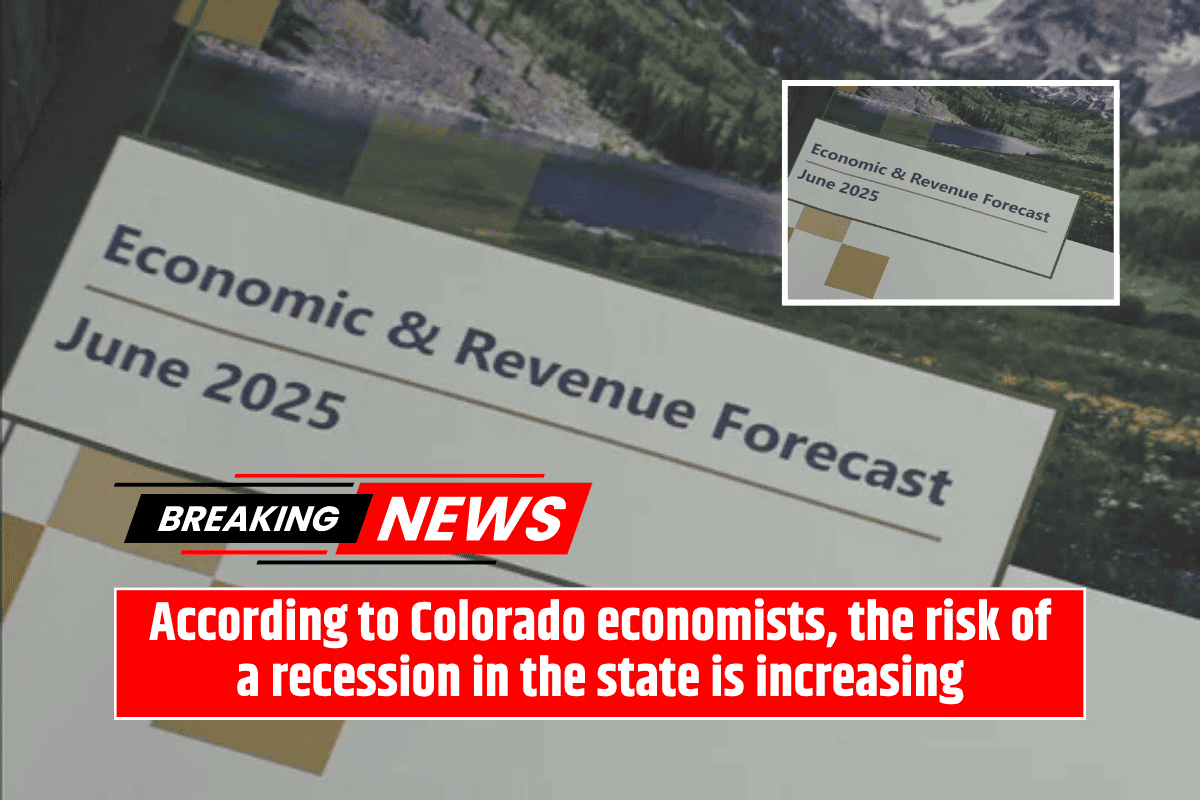Colorado is facing an uncertain economic future, with experts warning of a potential mild recession this year. The Governor’s Office of State Planning and Budgeting has raised the chances of this recession from 40% in March to 50%, while the risk of a more severe downturn stands at 25%.
Economists and officials are closely monitoring the state’s economic indicators, as the situation continues to evolve, with concerns about rising unemployment, slowing wage growth, and increasing consumer debt.
Amidst this uncertainty, policymakers are preparing for potential shortfalls in the state’s budget, which could worsen depending on federal decisions.
Economic Slowdown in Colorado
According to recent reports from the Governor’s Office of State Planning and Budgeting, Colorado’s economy has started to show signs of slowing down.
The state is trailing behind the national economy on several key indicators, including higher unemployment rates, slower wage growth, and a dip in consumer confidence.
Elizabeth Burger, the deputy director of the Legislative Council, pointed out that the state’s unemployment rate has surpassed the national average, and its wage growth is lagging behind that of other states. Additionally, sales tax revenue has been declining, signaling a slowdown in consumer spending.
One of the most concerning trends is the rise in credit card debt, which has reached its highest level in Colorado in 14 years. Half of the state’s total spending is concentrated in the wealthiest 10% of the population, indicating that the broader consumer base may be pulling back on spending.
This shift could be a result of households cutting back on non-essential purchases due to financial constraints, as noted by Bryce Cooke, the deputy director of the planning and budgeting office.
Budget Deficits and Economic Risks
Economists are projecting a significant shortfall in the state’s budget. The Colorado government is expected to face a $700 million shortfall in its general fund this year, a number that could potentially triple depending on federal economic policies.
Budget director Mark Ferrandino has expressed concerns about the risks of stagflation, a situation in which inflation and unemployment rise simultaneously, further compounding the state’s economic challenges.
Ferrandino also highlighted the potential negative impact of President Donald Trump’s proposed “Big Beautiful Bill,” which could lead to additional economic strain for Colorado.
Changes to programs like Medicaid, food stamps, and taxes could result in a $1 billion loss in state revenue. If a recession were to occur alongside these changes, the state could face a budget deficit of $2.6 billion, not accounting for the impact of tariffs.
The uncertainty surrounding federal tariffs continues to be a major source of concern, as any disruption in trade could worsen the state’s financial situation.
Contrasting Views on Federal Tax and Spending Plans
While state officials have painted a pessimistic picture of the economy, the White House’s Council of Economic Advisors offers a different perspective. The Council’s analysis of President Trump’s tax and spending proposals suggests that Coloradans would benefit from the changes.
According to the White House report, wages in Colorado could increase by $7,000 to $13,300 annually, and take-home pay could rise by $8,700 to $15,000.
This optimistic forecast contrasts sharply with the state’s concerns about budget deficits and economic slowdown, highlighting the differences in how federal policies are viewed at the state level.
As Colorado grapples with a slowing economy, the state faces significant challenges in balancing its budget and preparing for potential economic downturns. With experts warning of a possible mild recession, the state is looking at a projected $700 million shortfall in its general fund this year, with the risk of this number growing depending on federal decisions.
While state officials have expressed concerns about the impact of federal tax and spending proposals, the White House’s analysis suggests that Coloradans could see wage increases and higher take-home pay. As the situation unfolds, the state’s economy remains at a crossroads, with both opportunities and risks ahead.
